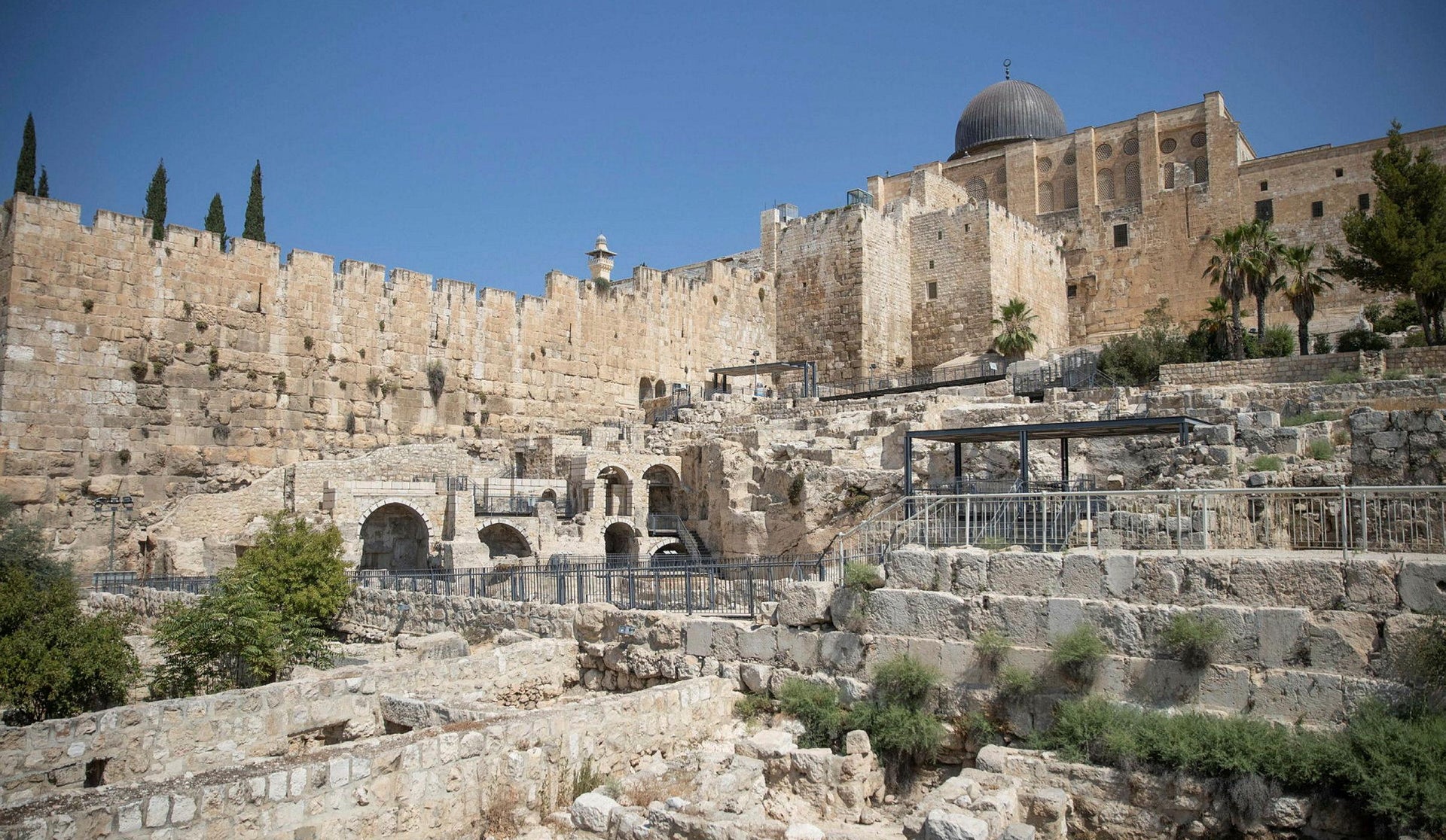After the reunification of the city following the 1967 Six Day War, Israel stopped land registration in that part of the city, and more than 90 percent of the land in East Jerusalem remains unregistered, adding to chaos in city planning there. It makes it difficult to obtain construction permits or to plan Palestinian neighborhoods in the city as well as fosters a real estate black market.
In a statement for this article, the Justice Ministry said in part that claims that the registration process is being used to take control of land and settle Jews there is “without foundation.” The registration is a kind of judicial process “that is open to anyone claiming to have ownership rights,” the ministry said, adding that the office of the Jerusalem land registrar does not direct its efforts at specific landowners.
The Ophel Archaeological Park is one of the most important in the city and constitutes a portion of Davidson park next to the Western Wall. Until a year ago, the national park was administered by the City of David Foundation (also known as the Elad Foundation). It is now run by the Company for the Reconstruction and Development of the Jewish Quarter.
The Mikvah Trail, which was built with support from the Jewish Australian philanthropist Kevin Bermeister, was dedicated in 2017. Bermeister is one of the largest donors to the movement that seeks to settle Jews in East Jerusalem and is in close contact with settlement organizations and right-wing politicians. In recent years, the City of David Foundation has been digging a canal from the City of David, south of the Temple Mount, towards the Ophel. On Jerusalem Day this year, the cabinet approved special funding to complete the canal and tunnel project.
“The land [registration] arrangement was supposed to be for the benefit of the residents. It’s clear that no one can benefit from an arrangement in such a place and that this is another phase in the government taking control on the ground,” said Gal Yanovsky, a lawyer who is involved in policy planning for the Ir Amim nonprofit.
“The land [registration] that has been advanced through the resolution, which was meant to benefit the Palestinian residents of the city, is being exploited by the government in a cynical manner to steal their land and so that the state can take control of land and advance the interests of the Jewish settlers in the east of the city. Now things have already been stepped up a notch. The [registration] next to the Al-Aqsa Mosque is an attempt at Israeli control of the most sensitive area of the city,” Yanovsky said.
“The more time that passes, we have been seeing that the land [registration] is being exploited for the interests of the state and the settlement enterprise and not for the benefit of East Jerusalem’s residents,” said Sari Kronish, an architect from the nonprofit Bimkom, which bills itself as promoting “development of planning policies and practices that are more just and respectful of human rights, and responsive to the needs of local communities.” Land registration “is important for jumpstarting urban development but to the extent that it is done in the dark and not for the benefit of all of the residents, it would be better to stop it,” Kronish said.
About three weeks ago, the registrar published two more notices regarding the registration process, stating that he intended to begin the process in Abu Tor, overlooking the Hinnom Valley and at the Ophel park. On Thursday, in a step unrelated to the announcement, the Waqf issued a statement condemning archaeological work at the Davidson park, claiming it was being performed on land belonging to the Waqf.
________________________________________________________________________________________
 Monday, June 27, 2022 at 11:41PM
Monday, June 27, 2022 at 11:41PM 
 APJP |
APJP |  Post a Comment |
Post a Comment |